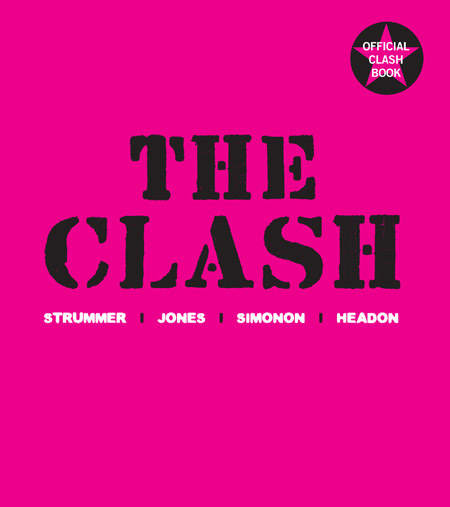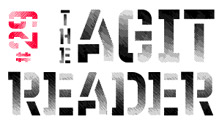
Grand Central Publishing
A year ago, this scribe personally attended one of those CMJ Music Marathon festival panels about punk heroes, or how to hype your band, or some such topic. Dunno, they all seem to mesh together as fading musical ideologies and encroaching world commerce monsters eat each other like a snake, his tail, and the “authentic” Varvatos rock gear he’s wearing. Which reminds me, word is Marky Ramone and Tommy Hilfiger are teaming up on a clothing line. Seriously. Ugh.
Which brings us to this utterly massive Clash coffee table book (assuming your coffee cup is about the size of Shaq’s ottoman). It would seem damn near impossible to imagine that with the many Clash related books, documentaries, restrospective DVDs, and, well, clothes that have come down the road since Joe Strummer sauntered to the great beyond that there could be anything left to say or show about this classic band.
Well, The Clash is just exactly the kind of hefty important-looking tome that Clash fans think this band deserves—yearly. Like many, it purports to be the be all–end all (“The first official book to be created by the band”), and it kind of is, if you’re not looking for every detail of every recording session and argument. It actually does offer some personal insights into the band that even hardcore afficionados might not have heard, as there are good chunks of interview bits from the four principal members, some reprinted, some recently unearthed. (It seems second drummer Terry Chimes and especially the somewhat underrated last album, Cut the Crap, are getting the broom from history’s sweep, though.)
And of course the Clash just looked so damn cool. Their art/style—across single covers, flyers, promo photos, live shots, etc.—was always inspirational, and more so with the great resolution offered here. Scraps of lyric sheets, ticket stubs, newspaper ads, zine articles, and other endless ephemera continues to amaze from front to back cover.
At that punk panel thing, Clash bassist Paul Simonon’s wife offered many interesting asides and useful information, as she has been the Clash’s official marketing head for some time. But it was creepy when she tried to explain (in so many words) that when selling Clash tunes for TV commercials, “We only choose car companies Joe would approve of.” There’s a wee trace of that in this completist’s volume. But if it means the world is bombarded by more splashy revolutionary verbiage and image, and just one more kid out there thinks of stenciling “Hate & War” on his jacket, it’s all worth it. So long as Varvatos doesn’t steal the kid’s brainstorm and sell it down at CBs.
Eric Davidson
The Second Coming of the Buddha Machine
The Pitchfork500
The Flaming Lips' Christmas on Mars
Happy Mondays: Call the Cops
Lou Reed's Berlin
The Elephant Six Holiday Surprise Tour in Columbus
Jandek at the Wexner Center
Live reviews of My Morning Jacket and Echo and the Bunnymen
Radio Silence/A Selected Visual History of American Hardcore Music
Columbus Discount Records vs. Sub Pop
Skins & Punks
Kraftwerk and the Electronic Revolution
Agent Orange Live Review
Alice Cooper Live Review
